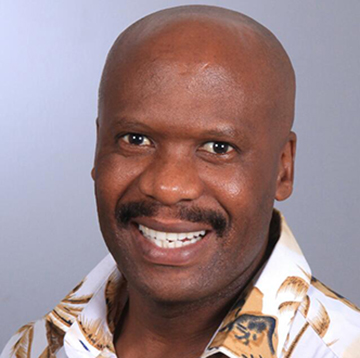News & Events
How men can advance to the forefront of combating GBV
South Africa continues to face rising figures in gender-based violence (GBV), along with a decline in economic growth. There have been questions around the contribution that men can make to the fight against GBV, considering the 16 Days of Activism for No Violence Against Women and Children campaign.

Dr George Mkuzelwa Skosana
Dr George Mkuzelwa Skosana of Unisa’s Department of Psychology remarks: “Men should go back to their roots and recognise their manly roles as providers and protectors of their families and society.” He places great emphasis on protecting and nurturing relations with the opposite sex, rather than abusing it.
“It is important to maintain self-respect and building relations with loved ones,” he continues. “Absenteeism of fathers has a negative impact on children. Children, especially boys, who grow up without fathers tend to experience problems with the law and difficulties in relationships with the opposite sex, and tend to have low self-esteem. Therefore, the lack of a father-figure in the lives of young boys robs them the love, care and guidance they need to interact with other people, especially the opposite gender.”
Turning his attention to girl children, Skosana says that they can also gain from having sound relationships with their fathers, as they can experience an exemplary way of how girls should be treated in relationships.
Skosana believes that men should create a safe space where children and women can speak freely without any fear of being victimised. “Men who are fathers have an important role of demonstrating how boys should treat girls, as this will help promote equality. A safe environment will not only benefit women and children, but will help to build a country that listens and responds appropriately to the needs and aspirations of its people, in general,” he affirms.
For Skosana, men should help change the persisting narrative that they are superior to women. “We need to challenge gender stereotype and roles. In some societies, women are still regarded as second-class citizens, and are not accorded the same rights and status as men,” he adds. “This is evident in most patriarchal societies. Obviously, the country cannot move forward when one gender oppresses the other.”
Commenting on the extent to which the current socio-economic status of the country can affect GBV, Skosana acknowledges that it is faced with several challenges, including the rise of GBV cases and how the COVID-19 pandemic contributes to it. He remarks that in dire economic situations, it is easy for women and children to become easy targets of GBV. “Nevertheless, that should not be an excuse to commit GBV,” he says. “We all need to take responsibility to ensure that our families and societies are safe and healthy. Poor socio-economic conditions cannot be solved by acting violently towards other people. Clearly, we need some intervention that can prevent any sort of harm on women and children.”
Skosana states: “Although there are initiatives to raise awareness of GBV, we need more men to take the lead to fight this plague, also as a call by South African President, Cyril Ramaphosa. It will, therefore, be impossible to fight GBV if men are the perpetrators.”
According to Skosana, unemployment can have negative effects on relationships and marriages, as well as contributing to GBV. As such, he advises people who are experiencing anger and frustration related to economic issues to seek professional help. He concludes: “There are psychologists and institutions that help people to deal with a variety of problems, including anger management. This will not only benefit an individual, but also their families and society.”
#UnisaAgainstGBV
*By Simphiwe Mthimunye, Unisa Student
Publish date: 2021-12-10 00:00:00.0
